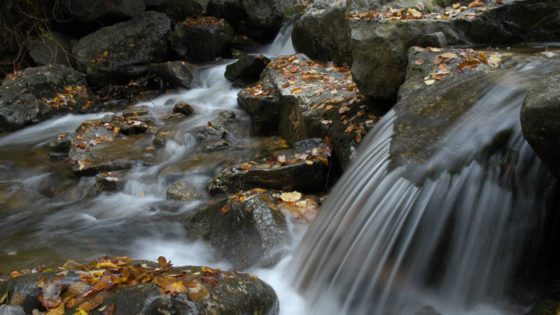Stroud™ Water Research Center and the Department of Biology at the University of Pennsylvania (Penn) announce opportunities for graduate research with adjunct Penn faculty at the Stroud Center. Research may address a wide variety of questions related to flowing water ecosystems.
Students must apply to the Penn Department of Biology program directly and be accepted as a general graduate studies student, and must identify an area of interest with a Stroud Center researcher (see below). Students will complete their course work at Penn. The Stroud Center is approximately 40 miles southwest of the Penn campus and is known worldwide for its groundbreaking freshwater research and excellent laboratory facilities.
Adjunct Penn Faculty at the Stroud Center
Stroud Center scientists are actively working at numerous study locations including White Clay Creek and other Piedmont streams near the Stroud Center, streams near the Maritza Field Station in northern Costa Rica, and other stream and large river locations.
Penn strongly encourages prospective students to contact faculty they may be interested in working with, to determine whether they are accepting new students and to discuss ideas for possible research projects. Contact information is available on the profile pages linked in below.
- David Arscott, Ph.D.: Aquatic primary production, distribution and diversity of aquatic macroinvertebrates, ecohydrology, and the ecology of rivers and flood plains.
- Melinda Daniels, Ph.D.: Fluvial geomorphology, hydrology, and stream ecosystem ecology of both “natural” and human-modified river systems from reach to watershed scales.
- John Jackson, Ph.D.: Population and evolutionary ecology of stream insects, abiotic and biotic processes in streams, energy and nutrient exchange within streams and riparian zones, and benthic monitoring and water quality assessment. Recent studies have been located in temperate and/or tropical streams.
- Jinjun Kan, Ph.D.: Environmental microbiology and molecular microbial ecology of aquatic ecosystems, particularly freshwater and estuaries, with focus on algal, bacterial, archaeal, and viral population dynamics, and interactions with local environments, including trophic interactions, nutrient cycling, and biogeochemistry.
- Bernard Sweeney, Ph.D.: Population and community ecology of temperate and tropical insects, ecology of streamside forests, genetic structure/ bioenergetics and secondary production of aquatic insects, bioassay of toxic substances, stream pollution assessment and restoration.


